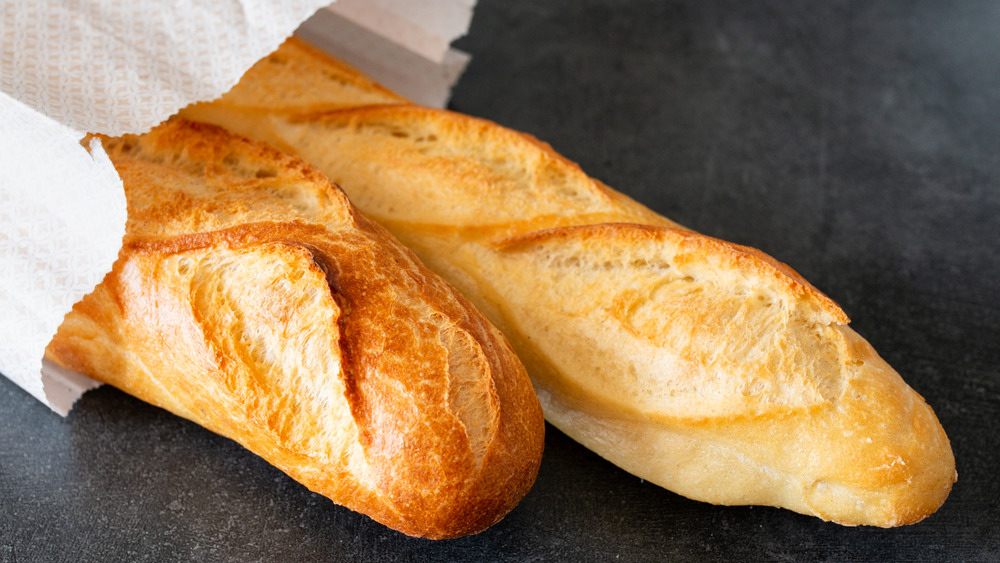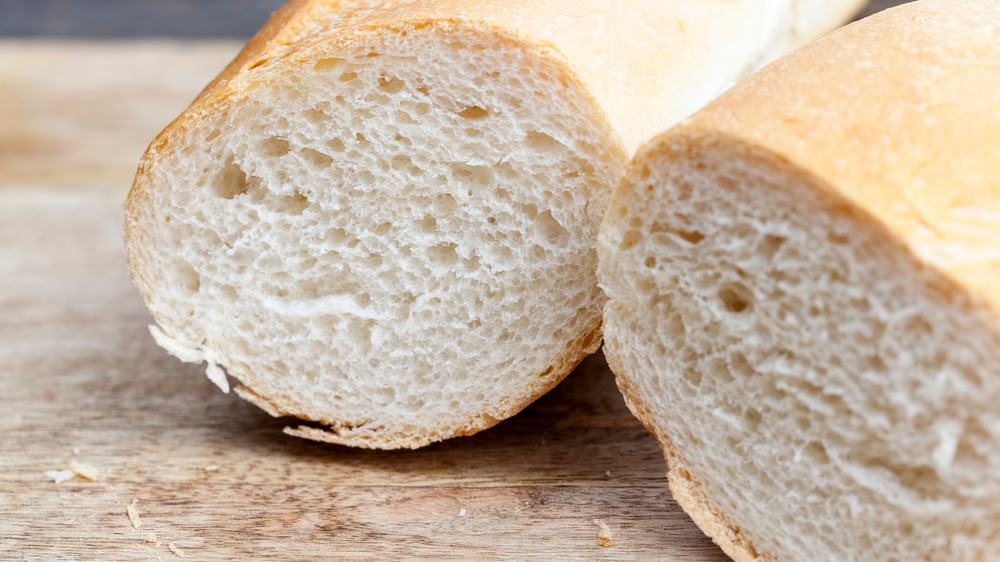The Real Reason Baguettes Become Stale So Quickly
The French certainly knew what they were doing when they allegedly invented the baguette back in the 19th century. The long loaf of fluffy white bread, nicknamed "the French stick," is not only delicious but it's also surprisingly simple, at least in terms of its recipe. The traditional baguette contains only four ingredients (flour, water, salt, and yeast). The result is an aromatic French bread that's equal parts crusty and chewy, and that can be enjoyed on its own or slathered in butter, jam, or a variety of other toppings.
Baguettes are all fun and games (or rather, all bread and deliciousness) until they've been out of the bag for what feels like all of five minutes and they're already completely rock hard. What gives? Why do baguettes — more so than any other type of bread — go stale so quickly? There's science behind the answer, and fortunately, keeping your loaves fresher for longer is easier than you think.
Baguettes are bigger and airier than other breads
There's an entire Reddit thread debating why baguettes seem to go stale so much faster than other breads: Some say it's due to the large surface area, others say it's because the lengthy loaves are often sold in unsealed paper bags. But the real reason is actually due to the ingredients (or lack thereof) in baguettes. Bread goes stale when it loses its moisture and, as Our Everyday Life explains, because baguettes have so few ingredients, they dry up much faster. That's due to the fact that baguettes contain almost no fat (like added oil or butter), which other breads have that allows for moisture to stay trapped in for longer. With no fat, the moisture in the soft interior of your baguette stands no chance against the outside air.
If your loaf has gone rock hard, however, fear not. There are plenty of delicious ways to use up your stale baguette, including these genius recipes from Epicurious, which include everything from bread pudding to panzanella to meatballs.

